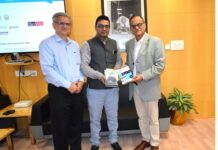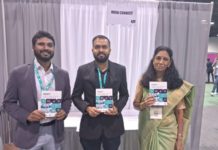New Delhi: Nine Nobel Laureates gracing the first of the Nobel Prize series, discussed the importance of both basic and applied research in fostering an innovative environment and also ways of addressing challenges worldwide through local research and global impact.
DBT Secretay, Dr K VijayRaghavan outlined the history and development of scientific research in India and the influence of the western countries on it. He introduced the dialogue highlighting the importance of both basic and applied research.
Dr Ada Yonath, Nobel Prize winner in chemistry insisted that it is important for young researchers to work on questions that are of ardent interest to them while Dr Serge Haroche Nobel Prize winner in Physics underlined the importance of basic research for sustaining scientific curiosity and seeking answers to challenges that nature poses. He said that blue sky research is important, it may not cater to short-term goals, needs trust and funding.
Dr William E Moerner, Nobel winner in Chemistry insisted that basic and applied research could coexist and outlined the importance of curiosity-driven innovative research. Dr David Gross Nobel winner in Physics pointed out that nature doesn’t know the boundaries between physics, chemistry and biology and stressed the importance of dreaming big, being able to take risks & not be afraid of failure.
Dr Venky Ramakrishnan, Nobel Laureate in Chemistry highlighted several areas of science in which India has the potential of strengthening its research base, one significant one being vaccine research. He also pointed out the necessity of linking research and education.
Dr Randy Schekman, Nobel winner in Medicine suggested that India can set up funds for undergrad students to develop their own research areas, a strategy which could direct some of the best brains towards research in their early years.
Dr Harold Varmus, Nobel Prize winner in Medicine who had written a book on Art and Politics of science dwelt upon how art influences science.
Enjoy watching the videos below:

































































